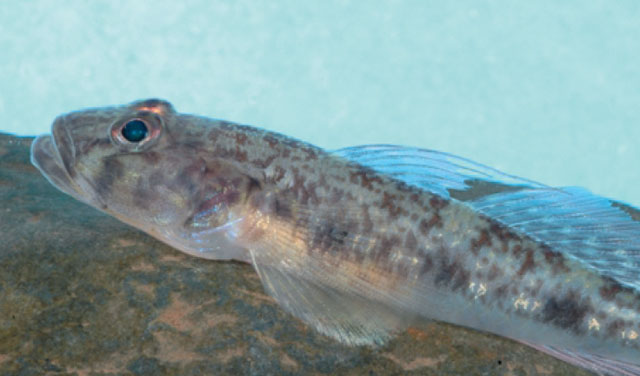| Gobiidae (Gobies), subfamily: Gobiinae |
| 12 cm TL (male/unsexed) |
|
benthopelagic; freshwater; brackish |
| Africa: east coast rivers from Mozambique south to the Swartvlei region of the Western Cape, South Africa (Ref. 52193). |
|
Dorsal spines (total): 7-7; Dorsal soft rays (total): 8-10; Anal spines: 1-1; Anal soft rays: 7-9. Description: Head depressed; snout elongate (Ref. 52193). Dorsal fin with 7 spines and 8-10 soft rays; anal fin with 1 spine and 7-9 soft rays; pectoral fin with 14-19 rays; caudal fin pointed (Ref. 52193). Scales in lateral series 28-32; nape partially naked, without scales; predorsal scales 0-13 (Ref. 52193). Colouration: Translucent brown with black X-spots along sides; black spot on hind membrane of first dorsal fin; soft dorsal with black and yellow spots and bars (Ref. 52193). Dark stripe from eye to upper lip; vertical bar or spot at caudal base (Ref. 2798). |
| Inhabits estuaries and river systems (Ref. 92840); lives in poolson the bottom amongst cover such as cobbles or vegetation (Ref. 52193). It feeds on bottom-living insects and small invertebrates (Ref. 52193). Breeds in early summer; eggs are oval (Ref. 52193). |
|
Least Concern (LC); Date assessed: 02 July 2016 Ref. (130435)
|
| harmless |
Source and more info: www.fishbase.org. For personal, classroom, and other internal use only. Not for publication.

